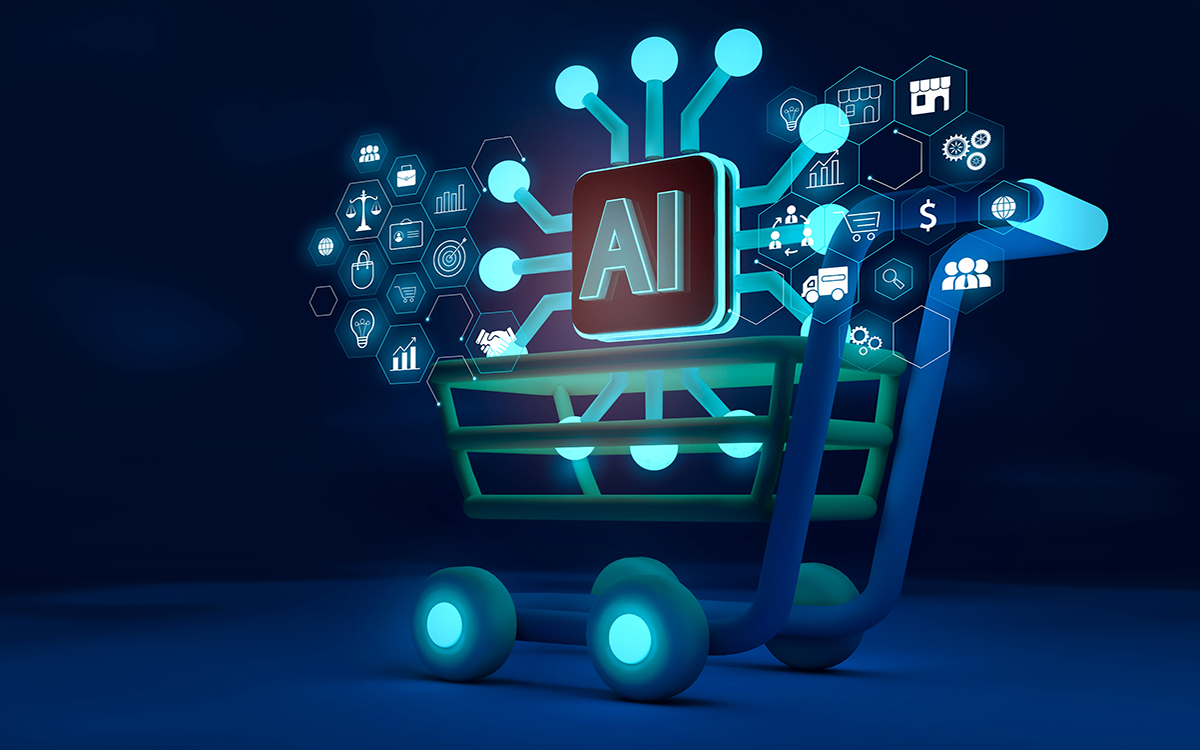Redefining retail: How data and AI are powering the future of shopping
Fujitsu / July 28, 2025
The retail sector is experiencing a fundamental transformation. While digital innovation has been underway for years, recent advancements in artificial intelligence (AI) —particularly generative models and AI agents— are creating unprecedented opportunities for personalised, customer-centric experiences.
Mahesh Krishnan, CTO at Fujitsu Oceania, and Andrew Gorkic, Lead Data Science Consultant, recently explored this evolution on Decoding the Future podcast. They shared how AI is revolutionising both online and physical retail environments, creating seamless experiences that put customers at the centre of every interaction.
Connecting the Dots with Data
Modern retailers have access to extraordinary amounts of customer information, ranging from purchase history and demographics to browsing behaviour and in-store movement.
"You need to understand who your customer is, what distinguishes them from others, and what behaviour they exhibit," Andrew explains. This understanding enables retailers to segment customers effectively and deliver recommendations that feel genuinely relevant rather than generic.
These insights feed into AI systems that can generate dynamic product suggestions, create targeted marketing campaigns, and even forecast demand. Whether it's recommending the perfect item based on past purchases or predicting peak store hours to optimise labour, data-driven decisions are delivering tangible results for retailers.
Beyond Chatbots: The Rise of Generative AI and Intelligent Agents
Traditional chatbots follow scripted responses, but generative AI changes everything. With large language models (LLMs), retailers can now engage customers in natural, contextual conversations. "These models are not only good at understanding language," says Andrew, "they're also developing reasoning capabilities."
This leap enables the creation of AI agents—systems that go beyond conversation to action. Imagine a virtual assistant that not only helps you choose your next holiday wardrobe but also books flights and accommodation based on your preferences and budget.
These agents can gather information, query databases, and complete transactions on a customer's behalf. This shift transforms online shopping from a series of transactions into a personalised service experience, closely mimicking human interactions. However there is one caveat: retailers must be transparent when AI is involved.
Hyper-personalisation: Bridging digital and physical experiences
As customer expectations rise, the line between digital and physical shopping continues to blur. Whether shopping via mobile, desktop, or in-store, customers now demand seamless, personalised experiences.
Retailers are responding with truly omnichannel approaches. Click-and-collect services, integrated loyalty programmes, and data-driven in-store experiences create seamless customer journeys. Video analytics can track customer movement within stores, enabling real-time promotions based on individual purchase history and current behaviour.
Physical retail spaces are evolving too. "It's no longer just about transactions," Andrew observes. "It's about experience." Stores are becoming experiential destinations where digital insights enhance real-world engagement. Tesla's approach exemplifies this shift—their showrooms provide hands-on exploration for customers who largely complete purchases online.
Building Trust in an AI-Driven Retail World
As AI systems become more sophisticated and human-like, distinguishing between automated and human interactions becomes increasingly difficult. This calls for a new level of transparency.
Retailers must be upfront about when customers are interacting with AI. They must also ensure their systems are secure, fair, and explainable. "Trust is a really big thing," Andrew emphasises. "Transparency is where it starts, but safety and governance must follow." Retailers who prioritize customer trust and maintain ethical AI practices will establish competitive advantages in this new landscape. Trust becomes not just a nice-to-have feature but a fundamental business requirement.
The Human-centred future
From personalised experiences to intelligent agents, the future of retail isn't simply about deploying more technology —it's data-driven, AI-powered, and deeply human at its core. Data and AI enable retailers to understand individual preferences, anticipate needs, and provide personalized service at scale.
This transformation requires retailers to think beyond traditional metrics like conversion rates and average order values. Success increasingly depends on building lasting relationships, creating memorable experiences, and earning customer trust through transparent, beneficial use of their data.
As AI becomes increasingly embedded in retail, those who lead with a customer-first, trust-first approach will define the next era of commerce. They'll create shopping experiences that feel both highly personalized and genuinely helpful, combining the efficiency of technology with the warmth of human connection.
Want to dive deeper into the future of AI-powered retail? Watch the full conversation between Mahesh Krishnan and Andrew Gorkic on Decoding the Future podcast. Also available on YouTube and Spotify.


Editor's Picks












